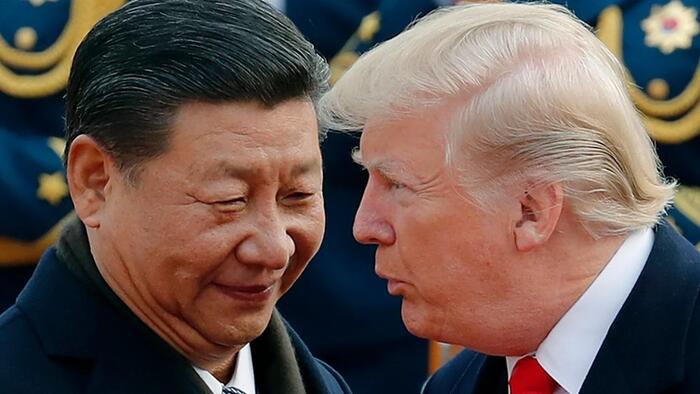Mass production of maggots, cockroaches, oysters investment opportunity waiting for Niger Delta govts – Researcher
By Ignatius Chukwu
Copyright businessday

A quick investment window for state governments in the Niger Delta has been revealed. This was unveiled at the 2025 ‘Make-In-Nigeria’ annual conferece in Port Harcourt which began in the week.
Investors are said to be ready to float factories that would process oysters and other sea foods, but absence of mass production to supply raw materials in commercial quantities is said to be the stumbling block.
This was revealed by a researcher and food scientist in Port Harcourt at the annual conference featuring national and international speakers and researchers convened by Uche Onochie, President of Marketplace Apostles International.
Klin Kabari, a professor of Food Science and Technology, said the Niger Delta governments were failing in setting up mass production schemes to feed the factories that he said were already waiting in the wings.
He called for research on mass production of cockroaches because it would boost the poultry industry. The researcher raised alarm, saying the poultry industry was in danger due to high cost of feed.
For this, he said mass production of cockroaches would boost the poultry and fish industries.
Kabari, who has an expertise in food product development and food analysis in the Rivers State University, named periwinkle as a Niger Delta delicacy waiting to be made an export product.
The challenge, he mentioned, is domestication of oysters to feed a proposed factory for periwinkles. He said proms/shrimps processing and packaging for export was a ready investment, saying factories were ready but mass production system to feed the factories. “There is coconut and cocoyam, palm fruits, etc, why is the Niger Delta not investing in mass production to feed factories?”
He said there is need for tech transfer to carry out mass production.
He said research has created blackfly maggots as feed (for poultry, fish, etc), saying efforts must be made to reduce cost of poultry which is caused by feeds. “There is high cost of poultry and fish feeds. This is killing the industry. Protein is the main content in poultry feed, and cockroach has much of it. That is why fowls run after cockroaches a lot.”
Kabari has supervised numerous postgraduate students and has served in several leadership roles at the Rivers State University including serving as a member of the university senate. He is a fellow of the Nigerian Institute of Food Science and Technology and Certified Food Scientist of Nigeria. He is also affiliated with international bodies such as the British Council and the European Centre for Research, Training and Development (UK).
Read also: Secrets of crude oil rise revealed as PINL engages 35,000 youths to protect pipelines in 4 states
He said researches should be targeted at solving national problems, else, the research is a waste of effort and resources.
The expert said there is wealth in agriculture and agric business, saying one kilogram of ginger is N450,000 in the market. “Those who say land is the problem do not know that one plot of land can farm ginger and get such yield. From there, you can grow to hectare.”
Lamenting the death of extension services in agriculture, the professor said there is need for collaboration. He urged the business community not to run away from the universities, saying universities could guide investors and businesses for better results.
He said the oil resources of the region was designed by nature to be used to develop the region’s agric-business.
He went on: “The problem is that those of us thinking are getting older. The young ones do not see what we see. My message to the young ones is, start early to venture into agriculture. This allows you to make your mistakes early and rise.”
He hinted of a ‘fufu project’ as a research project in the university which he said has already discovered how to ferment cassava fast to stop cassava producers from using detergents to ferment it.
In his contribution, I.B. Bindul, a Brig-General commander of the 56 Signal Brigade, said the event is a good example of non-kinetic security measure. “We in the security agencies appreciate it a lot. Kinetic is the use of force and weapons to fight insecurity, but non-kinetic measures involve use of preventive measures such as job creation and other programmes that lure the youths away from crime.”
He said Rivers State was better off in terms of insecurity. “There are places and states where people no longer go to farms because of insecurity.”
In his opening remarks, Onochie said the theme for 2025 is ‘Fusion and Tech’, and that the focus is on smart agriculture.
The convener who seems to have devoted the rest of his life to promoting efforts to produce in Nigeria dropped a revelation. Onochie said the world was going back to farming, and that the future is in agric business.
He tutored the audience mostly of tech youths that everybody is coming back to agriculture because humans must eat, and must eat cheaper.
“Tech is the only method to achieve this goal because tech will help farmers to produce cheaper and create mass production. It will require basic technology, not rocket science.”
He called it smart farming saying it is the new way to go. “The elites must find a type of farming that suits each of them. Its smart farming that will attract the elite and the youth to farming and agricbusiness.
“There is wealth in farming. Do not be deceived. 70% of the 210m Nigerians are young people, below 30 years of age. Collaboration is the key, so, no more working in silos.”
He urged the young agripreneurs to insist to be heard and to collaborate, and to focus on SMEs and startups.
Speaking on the theme, he said: “We must find a way to eat faster and cheaper. Farmers complaints are mostly about produce not getting to the market, storage problems, logistics, plus problems of tech and linkage.”
He said his team did a hackathon, and that the winner would go home with N1m. This would run for five years, all aimed at getting young people into the agric market, in belonging to a network that will help solve problems. It will focus on farmer-transport-tech-market.
“We need the young people because they are a tech generation. Make-In-Nigeria is trying to ignite the fire of industrialization in Nigeria, just as China, now a world production power, did. Its doable to have Made in Nigeria products.”
The Port Harcourt Chamber of Commerce, Industry, Mines and Agriculture (PHCCIMA) in their contribution said it is about the search for the one solution that Nigeria seeks.
Stating this on behalf of Chinyere Nwoga, the PHHCIMA president, the financial secretary, Emmanuel Ogbondah, admitted that the search was on and that each person in the audience had the duty to find the solution.
He said the business community is supposed to be the apple of the eye of the society and the government, but that it had been devastated. “One solution can change Nigeria, and it is that one solution that we are searching for.”
He listed problems of the business community to include inflation, poor infrastructure, volatility of forex, etc. “Where is the solution? It is in every Nigerian. It lies in our hands.
“Tomorrow is here today. Don’t think the youth are the leaders of tomorrow alone because they must act now. Banking crisis in Nigeria was solved by young people through recapitalization. SMEs are the backbone of the economy. Many successes have so far been recorded such as in communication. Do not mind the setbacks.
“Government cannot help themselves, so they may not easily help you. We are the government. Open you mind and learn today. This conference changed my life. I am a surveyor but I am now a bigtime farmer and am also in the hospitality industry. I attended this sometime in the past and took the inspiration to start.”
The conference will last for five days with top brains from Nigeria and abroad speaking to young entrepreneurs. Kiin Kabari, a professor of food science, thrilled the audience on day one with some latest research findings.
The need to galvanise the governments of the Niger Delta into specific investments especially in the areas mass production of maggots, cockroaches, and oysters and periwinkles to boost poultry feeds and supply fish stock to factories that produce oysters would give the region a huge advantage.



